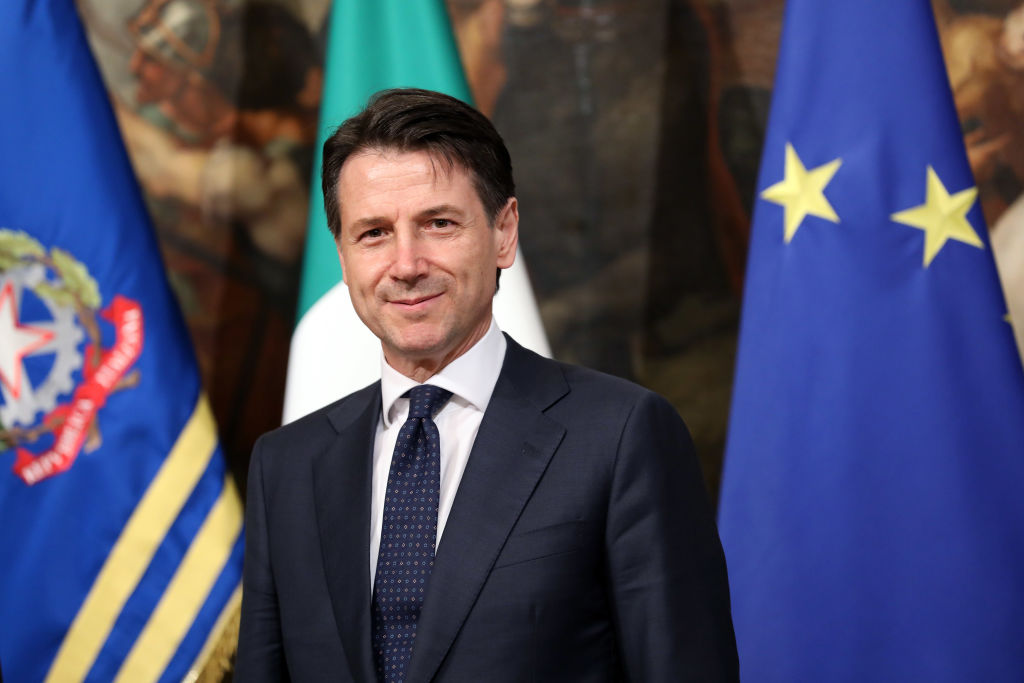Everyone thinks they know the script of how Italy’s saga will play out. As the populists take power in Rome, they will rail against Brussels, try to fight austerity, come up with some bold plans for reforming the euro, and hold a referendum or two. And then they will meekly cave in as Angela Merkel and the European Central Bank, the euro-zone’s equivalent of Gordon Brown’s ‘big clunking fist’ from a decade ago, bring them to heel. After all, that’s what happened in Greece when Syriza took power. A lot of fighting talk was followed by a dismal surrender, and five years of budget cuts, tax rises, and unending recession.
But there is a chance that Italy will be different. Why? Because it is a far bigger economy? Because it has a trade surplus? Because its debts are so enormous – a trillion euros owed to the rest of euro-zone – that it holds a stronger hand? Those are all important factors, and may well help. But the real reason it might be different is this: between them the Five Star Movement and the League have a plan. And it is not a bad one either.
When Syriza took power, its leather-jacketed finance minister Yanis Varoufakis toyed with the various proposals for an overnight withdrawal from the euro. It was, however, back-of-a-fag-packet stuff: think Boris Johnson on a bad day. No real, detailed planning had been put in place. When the ECB effectively switched off the cash machines, in a brutal display of central banking authority, the game was up. Three years later, Italy’s populists appear to have learnt from that defeat. Taking power yesterday, Italy’s new Prime Minister Giuseppe Conte showed few signs of compromising on the coalition’s radical challenge to the EU’s establishment. And unlike Syriza, the mechanisms have already been carefully thought through.
Most significantly, the coalition is looking at a ‘parallel currency’. A small group of Italian economists have been quietly working on this for a few years. Its main architect, Claudio Borghi Aquilini, is hardly an idiot: a former Deutsche Bank and Merrill Lynch banker, he now teaches economics. The proposed ‘mini-BOTs’ would see government debt issued in newly minted IOUs, which could then be used to pay state and welfare bills, collect taxes, and could circulate freely within Italy. In fact, all money these days is simply a form of state-backed IOU. The important point about the ‘mini-BOT’ is that it could be established alongside the euro. There need be no sudden, traumatic disruption. It could gradually replace the single currency, or indeed run alongside it forever. Could that work? No one really knows. It has never been tried. But there is nothing in the textbooks to say it couldn’t. Indeed John Major proposed a parallel currency at the time the euro was launched. And if you count Bitcoin as a form of money, most countries already have at least two. On top of that, the proposed flat taxes, which Conte re-committed himself to this week, will massively reflate demand. That matters as well. Why? Because you can’t pull off a reform of this magnitude without lots of consumer spending to keep the economy growing.
The markets and most ‘experts’ are assuming that because the last challenge to the euro failed, this one will as well. But that is not necessarily true. Sure, it won’t be easy. As Theresa May could no doubt advise Signor Conte, getting out any EU scheme is a lot of hassle. That said, the plan is a perfectly workable one – which means Italy’s radicals might just have a chance of pulling it off.






Comments